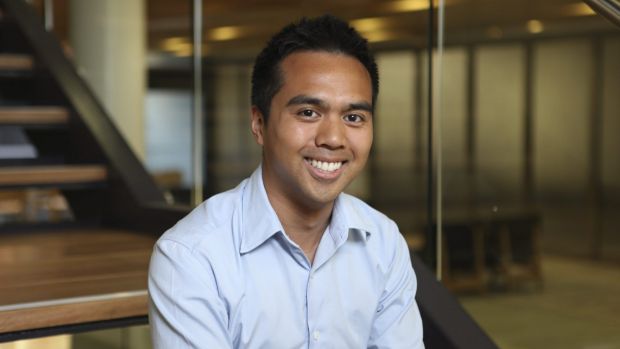Biostatistician Joseph Descallar says it’s quite common for him to encounter others who have misconceptions about what he actually does for a living. They regularly assume his job involves spending all day sitting down crunching numbers, he adds.
“But there’s actually a lot of reading and writing and presenting involved as well,” Descallar says. “And a lot of what we do is learning how to communicate some of the results we find.” Descallar is a biostatistician at not-for-profit medical research organisation Ingham Institute. He advises Ingham’s cancer, brain injury and orthopaedics researchers on the best study designs to adopt to analyse the data they need crunched to complete their research.
 Biostatistician Joseph Descallar: “A lot of what we do is learning how to communicate some of the results we find.”
Biostatistician Joseph Descallar: “A lot of what we do is learning how to communicate some of the results we find.”
“A lot of health research is very collaborative,” he says. “And because my background is not really in health — it’s more in the maths and stats area – learning about the health side of the research is very interesting.” Descallar completed a bachelor of science in 2007, majoring in mathematics and statistics.
“Along the way I was fortunate enough to do some research with the statistics department as part of a summer vacation program,” he says.
“The project I was working on was in biostatistics and that pretty much started my interest in the biostatistics field.” After graduating, Descallar was accepted into NSW Health’s biostatistical officer training program, a three-year workplace training course available to graduates committed to careers in biostatistics.
In the course, trainee biostatisticians complete a series of work placements within the NSW health system and a part-time master of biostatistics degree. The training course emerged out of a growing need for high-level biostatistical skills in the public health workforce.
Descallar has been in his current role at the Ingham Institute since 2011 and also presently works as a conjoint lecturer in the medicine faculty at the University of NSW. In the near future, he intends to begin a PhD potentially focusing on asthma research.
Having that qualification is significant for a biostatistician, Descallar says.
“I think for someone who is in my role and wants to stay within research for as long as possible, the PhD is very beneficial.
“The research I’m doing now is mainly led by a senior researcher, for example, but it’s an opportunity to be more independent.
“It’s also an opportunity to specialise in a particular area.”
